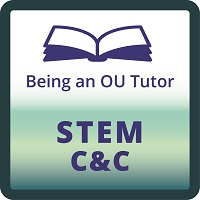Use 'Print preview' to check the number of pages and printer settings.
Print functionality varies between browsers.
Printable page generated Sunday, 22 February 2026, 10:57 PM
Part 7 Conclusion
7.1 Overview
We hope that this badged open course (BOC), Being an OU Tutor in STEM, has been an interesting experience for you and that it has inspired you to apply for a tutoring role with The Open University.
It is one of the most rewarding jobs in the University and here is a reminder of some of the quotes from OU tutors that you have read during the course.
"OU teaching is so different from what I do by day, it is almost addictive. The thrill you have when a student has grasped what you have said in a tutorial, and you see it come back to you in an assignment - you know you really have imparted more than just the text, but a real understanding which can be applied to everyday life."
“Being an AL brings flexibility to my life. There are times when I am busy and must concentrate on the matters at hand, but there are plenty of others where I can be free and mobile if I wish. I don't have to work from home all the time, with a laptop and the right setup I can be free as a bird. Organisation is up to me, the motivations come from within, teaching is good and there are plenty of examples where I can see that I have made a genuine difference to people's lives.
"It is a marvellous job for someone who is disabled. The OU is very open access to ALs as well as students. At first, when I was trying to build up my private tuition from home, the OU work I had was my anchor, it gave me stability. Also, the OU gets quite a lot of disabled students, and I think it must be good for them to see a disabled tutor."
"I really like the teaching. OU students - as opposed to younger undergraduates - have worked very hard to get to where they are, so they really appreciate the fact that they are able to study. They are so keen. You could not ask for anything better."
Now let's look at the practical steps on how to apply to become an OU tutor.
7.2 Practical steps to help you – vacancies and how to apply
Tutoring vacancies at The Open University are advertised both internally and externally. Our external vacancy page offers you the opportunity to filter on the faculty and the type of role. For Computing and Communications vacancies please select “Faculty of Mathematics, Computing and Technology” and click on the Apply button.
As part of our union-agreed recruitment processes, vacancies are usually advertised internally first and then externally if necessary. There are four advertising rounds in advance of each module start and modules may be advertised in some or all of these rounds. This means that the vacancy site is updated on a regular basis.
Recruitment windows
For modules starting in October 2021, the recruitment closing dates are:
29 April 2021
27 May 2021
24 June 2021
22 July 2021
26 August 2021
If there is more than one module that you are interested in applying for, please do apply for more than one. Different modules have different average weekly hours and different salary bands, and you can see module-specific information for each vacancy before deciding on applying.
This will change in the future as The Open University is in the process of implementing a new AL contract, where tutors will be offered a permanent fractional contract of employment rather than being employed on one specific module.
7.3 Submitting an application
If you decide to submit an application form, it is important that your application demonstrates how you fully meet the generic person specification and the module person specification for the vacancy that you are applying for. Ensure that you are as full as possible in your application as the selection panel will only consider information on the application and they will shortlist based on your fit to the generic and module person specification.
The digital badge, Statement of Participation, and the learning outcomes from this course can be included to support your application. Read the further guidance on completing the application form, as well as the Generic Person Specification. The Module Person Specification can be found in the module details link attached to each vacancy advert. Once completed, your application should be sent to al-applications@open.ac.uk.
Once an application form has been submitted, receipt of the form is acknowledged by an automated email. As soon as possible after the closing date, applications are considered by the interview panel and a shortlist is drawn up. Shortlisted candidates are then contacted and invited for interview. Applicants who are not shortlisted are not contacted.
If you are invited to an interview this is usually conducted by two members of the OU staff and afterwards you are informed of the outcome of the interview. If you are notified that you are not appointable your application will be terminated. If you are appointable, and there are sufficient student numbers, a contract is sent to you about a month before the start of the module.
If there are not sufficient student numbers, you are still considered to be appointable for up to 36 months and you could be offered a contract for the next presentation of the module.
7.4 Equal opportunities
The OU is an equal opportunities employer and welcomes applications from all backgrounds and nationalities. However, the OU is only able to accept applications from candidates who are resident in the UK, Guernsey, Jersey, the Isle of Man or the Republic of Ireland. Applications can be submitted in Welsh and a copy of the application form in Welsh can be downloaded from the How to Apply web page.
We aim to support our tutors so that they can fulfil the requirements of the role, so if you are disabled or have a medical condition and are short-listed for an interview you should discuss any adjustments required to enable you to attend the interview with us. Information about who to contact will be provided in your interview letter.
Resources are also available to enable tutors to provide support and guidance in meeting the needs of disabled students.
7.5 Summary
We very much hope that you now have all the information and enthusiasm you need to apply for a tutoring vacancy with The Open University. Now is a suitable time to review and reflect on what you have learned from this course.
Now you have completed this course you are able to:
- Identify the core aspects of the OU tutor role
- Summarise the OU’s teaching methods and technologies
- Demonstrate an understanding of the Computing and Communications curriculum
- Describe the tutor’s role in correspondence tuition
- Explain the role of CPD in supporting the development of pedagogic practice with novice tutors.
7.6 Further video resources
The full unedited footage of the video interviews with the OU tutors featured in this course is available here. These videos may prove interesting to watch if you would like to understand a little more about a particular aspect of being an OU tutor. The vidoes are listed under each subject heading.
Challenges in supporting students
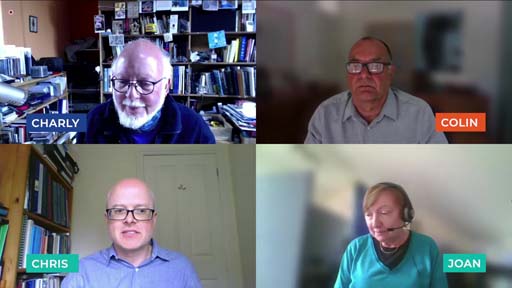
Transcript
Helping to develop student skills
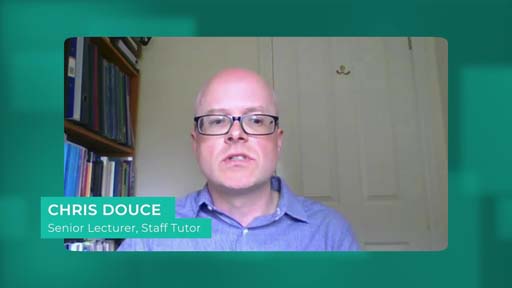
Transcript
How did you feel when you first started as an OU tutor and how do you feel now?
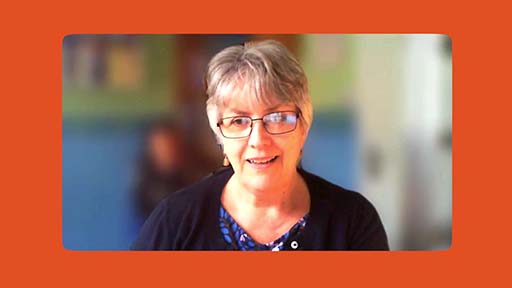
Transcript
How to help students engage with their learning
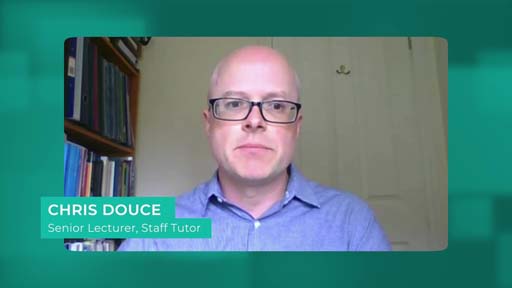
Transcript
Mentor and mentee roles
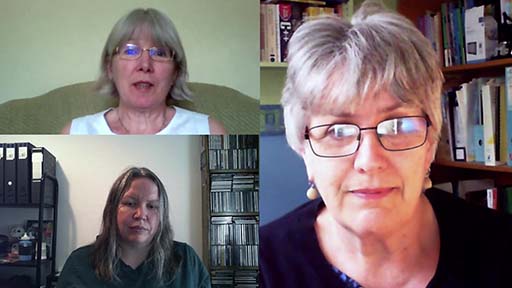
Transcript
The role of a tutor
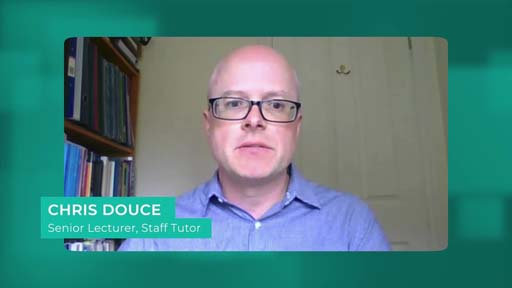
Transcript
Student support
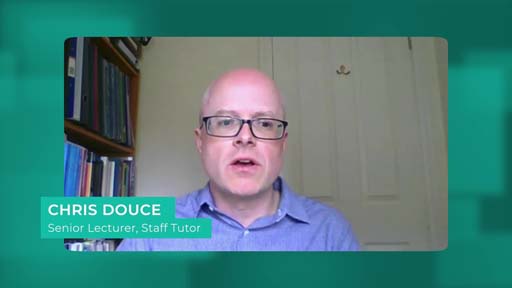
Transcript
When to contact students
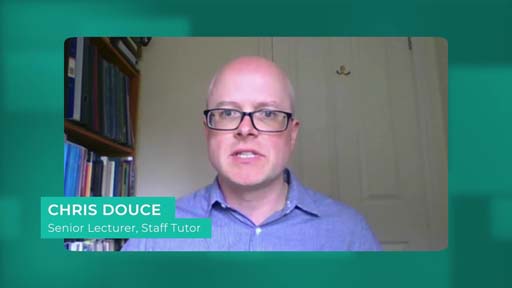
Transcript
7.7 End-of-course knowledge assessment
This knowledge assessment contains 12 questions. The pass mark is 60% and you have unlimited attempts at the assessment.
This assessment counts towards your digital badge and Statement of Participation which can be used to support your application for a tutor role at the OU.
Go to the End-of-course knowledge assessment now and gain your digital badge.
References
Acknowledgements
Grateful acknowledgement is made to the following sources:
Every effort has been made to contact copyright holders. If any have been inadvertently overlooked the publishers will be pleased to make the necessary arrangements at the first opportunity.
Important: *** against any of the acknowledgements below means that the wording has been dictated by the rights holder/publisher, and cannot be changed.
Except for third party materials and otherwise stated (see terms and conditions), this content is made available under a Creative Commons Attribution-NonCommercial-ShareAlike 4.0 Licence.
The material acknowledged below is Proprietary and used under licence (not subject to Creative Commons Licence). Grateful acknowledgement is made to the following sources for permission to reproduce material in this free course:
Acknowledgements for Part 7
Security-specialist-working-at-system-control: © gorodenkoff / iStock / Getty Images Plus
Team-of-computer-engineers: © gorodenkoff / iStock / Getty Images Plus
Don't miss out
If reading this text has inspired you to learn more, you may be interested in joining the millions of people who discover our free learning resources and qualifications by visiting The Open University – www.open.edu/ openlearn/ free-courses.



